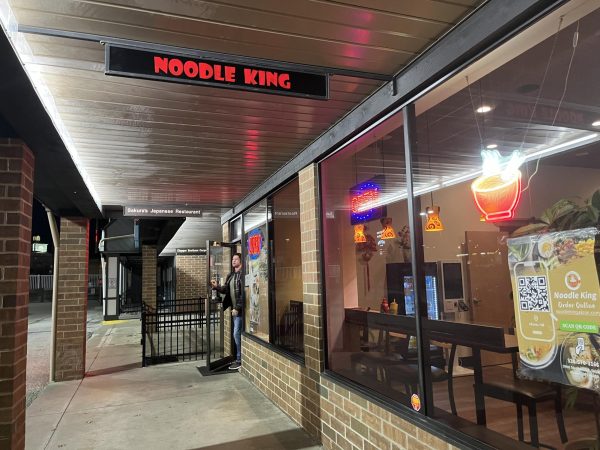Shoplifting hinders economics, causes headaches

I recently started working at f.y.e. (for your entertainment) at Summit Mall, a media store that draws in self-proclaimed hipsters such as myself. I enjoy working with the customers, helping them find a record they want, or helping them decide between two record players. But an economic danger to stores such as f.y.e. runs rampant among our nation, and can take this pleasant experience away from me quite easily. The threat of shoplifting creates a financial burden on the world of business, and I, for one, am already tired of preparing for the worst in my customers.
On the Sunday before Black Friday, my store manager Tenisha Walls called a mandatory staff meeting to educate employees on Black Friday shopping and form a plan of attack. I was surprised that most of the meeting covered shoplifting. Is shoplifting really that prominent of an issue?
According to the National Association for Shoplifting Prevention, shoplifting has a shocking amount of participants. Their website records approximately 27 million shoplifters (or 1 in 11 Americans) in the United States today. This association cannot account for the shoplifters who do not get caught, either.
Walls has worked for f.y.e. for twenty years, and currently manages the store that recently opened at Summit Mall. She hired me to work at the store and thoroughly explained at the meeting how shoplifting threatens the store and the economy in general. Walls voiced her personal experience with shoplifting.
“My personal experience with shoplifting is that nobody is exempt. I have found people who were from wealthy backgrounds who just got a thrill from shoplifting, and I have found people who were not from wealthy backgrounds. Young, old, there is really no way to classify a shoplifter,” Walls said.
The Bizmove website states that shoplifters do not have a stereotypical look. One day, a sloppily dressed, tipsy dirtball could stumble into a store and maybe steal a pack of gum. The next day, a snobbish lady drowning in expensive fur coats could be stealing that same brand of gum under her layers of clothing. There’s no need to strive for political correctness, my fellow social liberalists; anyone who deliberately steals merchandise from a business without the intention to pay for it, is shoplifting.
Now when I say that political correctness does not apply, I am not promoting of a racist, discriminatory or hateful agenda. Customers and employees alike should recognize that anyone can be a shoplifter. Now why should customers also worry about shoplifting? Consider this: if the shoplifter does not pay for the product, how will businesses make up the money? Businesses will simply raise their prices. Retailers are driving up prices to account for the number of shoplifting incidents occurring. So, regular shopper, guess who ends up covering those who shoplift? You.
Why do people feel the need to defy honest living and swipe a quick materialistic possession that they do not need? Some like the thrill they feel when they get away “clean.” If you’re looking for a thrill, go to Cedar Point; I do not need you cheating the system because you cannot fiscally provide for yourself, cannot fight peer pressure and accept a dare to take something, or are a crazy kleptomaniac who does not recognize that stealing is not only illegal but ethically wrong.
I got a job to start a path toward financial independence, and Joe Schmoe who lifts a CD or two from my store obviously cannot comprehend the value of a hard-earned dollar. If the shoplifter steals successfully, he or she wins. What the rest of consumers cannot grasp is that in a game where the shoplifter wins, everyone else loses.







